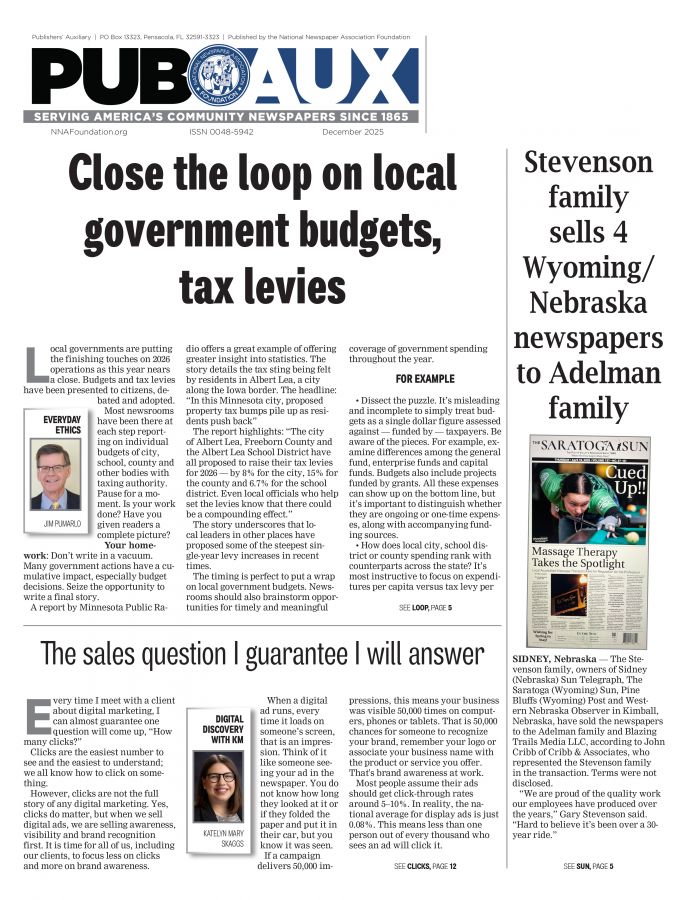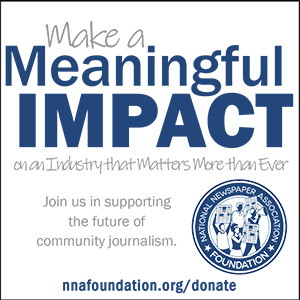Hannity Hassle: Let's Apply 'the Five W's and How'
Apr 20, 2018
By Gene Policinski
Inside the First Amendment
If the burning national question of the moment is whether Fox News Channel star Sean Hannity is a "journalist" or not, let's use the long-held set of journalistic questions to investigate: The proverbial who, what, when, where, why and how?
First, the "who": Sean Patrick Hannity is a cable TV conservative talk show host and best-selling author. Most recently he is said to serve as an unpaid advisor to President Trump — some say that relationship is so close that he "has a desk" at the White House. Hannity was born in New York City, and has spent much of his broadcast career there.
Next, let's go to "when" and "where": Hannity's TV show anchors Fox prime-time lineup with an audience of about 3 million nightly. His syndicated radio show goes out via the web as well as on a host of radio stations. He spent a few early years at TV stations in Alabama and Georgia, before returning to that self-proclaimed urban liberal bastion of New York City to find conservative fame and fortune.
"How" and "why" generally are outside the realm of First Amendment consideration. The nation's founders didn't include any specific definition of a free press practitioner, and why Hannity — or any of us — speaks or writes about politics is none of the government's business.
So, what about the "what"? Hannity said that he is a journalist in a 2016 interview with The New York Times — and said that he is not a journalist ("I'm just a talk show host") in a 2016 interview with The Boston Globe. The Washington Post's Paul Farhi just wrote that in an interview with the Times earlier this year, Hannity said, "I'm a journalist. But I'm an advocacy journalist, or an opinion journalist."
As it happens, the First Amendment's protection of a free press covers any and all of those roles in terms of free expression. Objective or biased, nonpartisan or politically motivated: All protected.
But it's trickier when it comes to the professional definitions and codes of journalism, where ethical standards come into play. And yes, journalism does have ethics — and most journalists follow them, despite some people's claims to the contrary. Transparency about business relationships is a basic rule, along with the admonishment to avoid such complications if at all possible.
Did Hannity have an obligation to let viewers know of his connection to President Trump's lawyer Michael Cohen — which for some as-yet unknown reason he and Cohen reportedly sought to keep secret? Yes, but not because of politics. In plain terms, we should just know "where he's coming from."
No one has been shocked that Hannity is highly critical of federal authorities who served search warrants at Cohen's office, home and hotel room and confiscated records and computers, and that he defends Trump's privacy and attorney-client privilege. But was that defense rooted in a personal matter? There were audible gasps in the courtroom, reports say, when Hannity was revealed during a recent hearing in New York to be a client of Cohen.
Was the non-disclosure in any way connected to the fact that Cohen's two other clients (Trump and a high-ranking GOP official) apparently used the lawyer to broker financial deals with women who claim a sexual relationship with them? Or could it be just a simple defense of a friend, rather than one related to legal standards or constitutional concerns?
To some degree, the "Hannity Hassle" afflicts much of the cable talk show world, where the motivation seems focused more on generating chatter (i.e., ratings) than doing actual journalism. And then there's the larger problem that reporters from news organizations so often now appear on such shows as pundits, while the networks' hosts — often former politicians — claim at times to be reporting "breaking news."
It's not just on TV that the crossover duties have impact: In some large part, a push for a national shield law protecting journalists and their confidential sources has failed because of the difficulty of defining who is a journalist.
Making it harder for all of us to determine if the "what" we see and hear is fact or opinion, which damages the very foundations of self-governance.
When the nation's founders protected a free press, they presumed it would be part of an independent system that would keep an eye on government and society on behalf of the rest of us — not just generate ratings or circulation.
We cannot make the required decisions of a self-governing society if the facts on which we base those decisions come to us via blurry "news" sources whose role and motivations are suspect — or worse, kept secret.
And that admonition does not just apply to Sean Hannity.
Gene Policinski is president and chief operating officer of the Newseum Institute. He can be reached at gpolicinski@newseum.org, or follow him on Twitter at @genefac.







